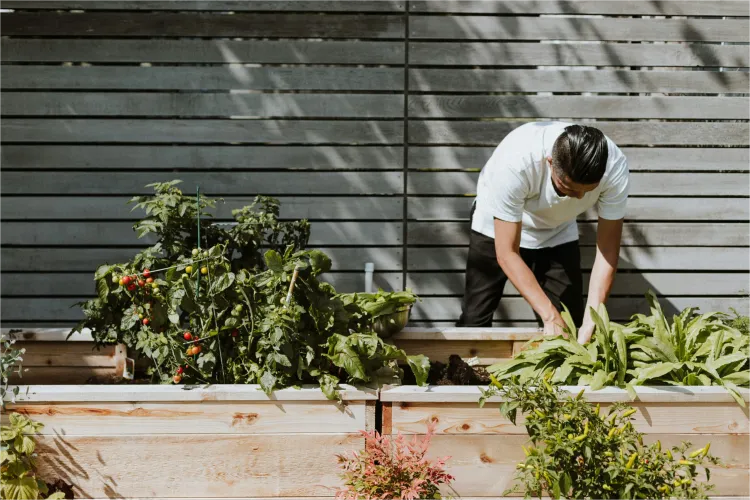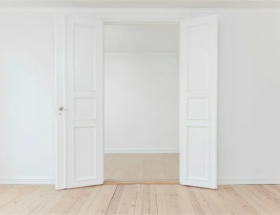
Benefits of becoming a gardener ― how daily labour improves mental clarity
Becoming a gardener might not be one of your goals for 2024, but we’re here to tell you why it should be. Gardening is usually seen as more fit for old ladies who have the time to care for plants properly because they require constant attention. However, historically speaking, men were always working in fields and providing for their families, so it’s a manly job at the core.
Indeed, you don’t need to become a gardener in the modern days as every vegetable and fruit is easy to find at the closest local store. Moreover, family structures changed considerably through the years, so men don’t have the burden of providing, as women, too, can work. Therefore, every party can focus on their lifestyles and strive to improve their mental health and physique without being restrained by traditionalism.
Still, the world’s progress is somehow backwards, and many people are turning to gardening to eat better and protect their health. So, if you’re one of them, here’s why you should start gardening.
It can be considered as exercising
Gardening seems simple since you only have to plant the seeds, irrigate them and ensure the soil is in good condition. Still, few people realise the physical strain of achieving these steps because you must get all the supplies, prepare the land, carry heavy objects and work prolonged hours to create the perfect garden.
Hence, gardening builds strength if done long term due to shovelling, digging and cutting grass continuously. All your muscle groups will benefit from daily gardening, contributing to lowered chances of gaining weight.
It helps reduce stress
Stress is one of the worst things experienced by the modern man because working at the office for long hours and being pressured by society’s standards can be overwhelming at some point. Stress can increase levels of blood sugar, and some men develop coronary artery disease from it.
But if you want to reduce stress quickly, you can start gardening with the reassurance that it’ll work. This activity is considerably calming, as you’re surrounded by nature and plants, far from the city’s agitation and your smartphone’s notifications.
This can also be explained by the fact that you know what the following step is, as gardening is pretty straightforward. Therefore, you can keep yourself busy and occupied with a pleasant activity while placing out the outdoor planters containing herbs that protect vegetables from insects.
It helps build a sense of empowerment
What’s more rewarding than seeing your planted seeds transform into delicious food? After all your hard work, the garden offers organic and nutritious vegetables and fruits that will power up your body and contribute to a longer life due to eating fewer chemicals, plastics and other toxic elements.
Empowerment comes from successfully reaping what you have sowed over the last year, providing confidence that the next year will be even more fruitful. Hence, gardening contributes to building a safe space to grow as a person, so you’ll benefit from enhanced patience and wisdom.
Gardening implies a significant responsibility of caring for the crops to get through winter or challenging weather, so it’s an excellent activity for self-development.
It makes you more self-sufficient
Self-sufficiency was the norm in the old days, but now, with all the technology and innovation, we depend on the global supply chain to provide our food, clothes and belongings. While this was a huge step ahead for people, it can sometimes hinder our potential for self-reliance. Therefore, learning to grow your own food can help you understand what it takes to make ends meet without relying on supermarkets.
Self-sufficiency includes a vast array of activities, but regarding gardening, it means you can grow your vegetables and fruits, cook meals and preserve food. You’re self-reliant when you have basic and nutritious vegetables in the garden, such as bell peppers, cucumbers and tomatoes and don’t need to buy them from the store.
Considering how much the prices increased over the past year, especially brown onions and swedes, it’s best to expect food expenses to continue in the same rhythm, so getting prepared for a food crisis will help you continue living as usual in case of an emergency.
It promotes creativity
Gardening can also teach you to be creative, as you have to learn how to place and care for the plants according to your space and possibilities. It might be easier to create a garden from scratch if you’re living in the countryside or have a home in the city, but staying in a flat doesn’t offer you the same space opportunities, so you need to think it through.
Indoor gardening systems are not complex, but they require you to figure out the space in the house that can be leveraged for growing veggies, herbs and low-light plants. For example, planting herbs in containers with potting mixes is the most affordable method. But if you want to challenge yourself, invest in hydroponic systems that maximise space and conserve water. Terrariums are also great for high-humidity plants because they’re low maintenance.
Being creative also means knowing when to improvise and use recycled materials and when to purchase new soil and utensils. Spontaneous gardening means making use of pebbles and stones, dried legume biomass and objects around the house that can act as pots. Your garden doesn’t have to look aesthetically pleasing but be functional, well-managed and loved. You can make it look however you want with the power of imagination.
What do you think about becoming a gardener?
Gardening was an everyday job for people a few decades ago. Still, only farmers and passionate people now do it as a hobby since we can procure food from the closest supermarket. However, gardening has numerous benefits that can improve the mind and build the body, so it’s one of the best activities for men who want to introduce traditional labour while maintaining the same lifestyle as before.









